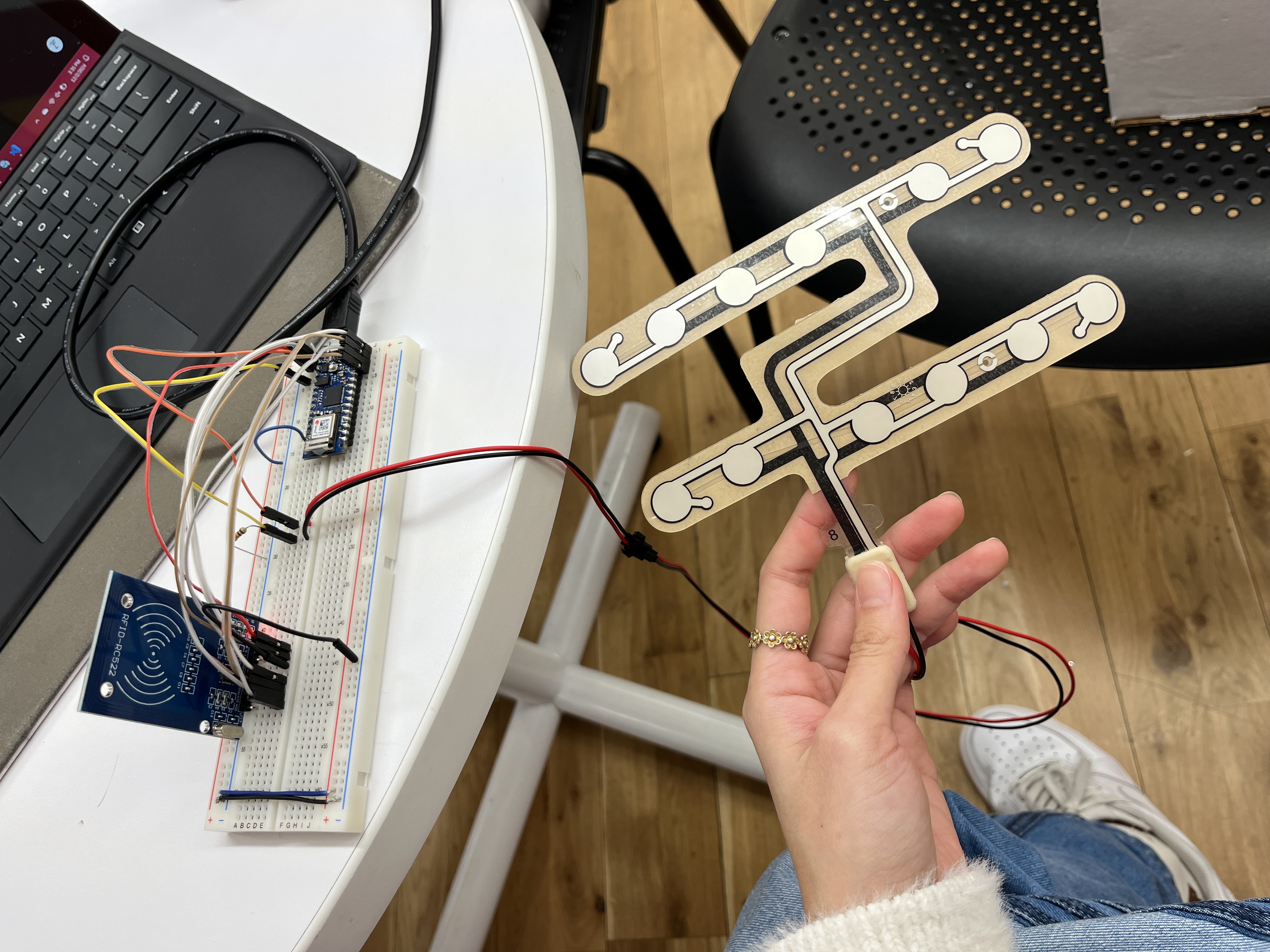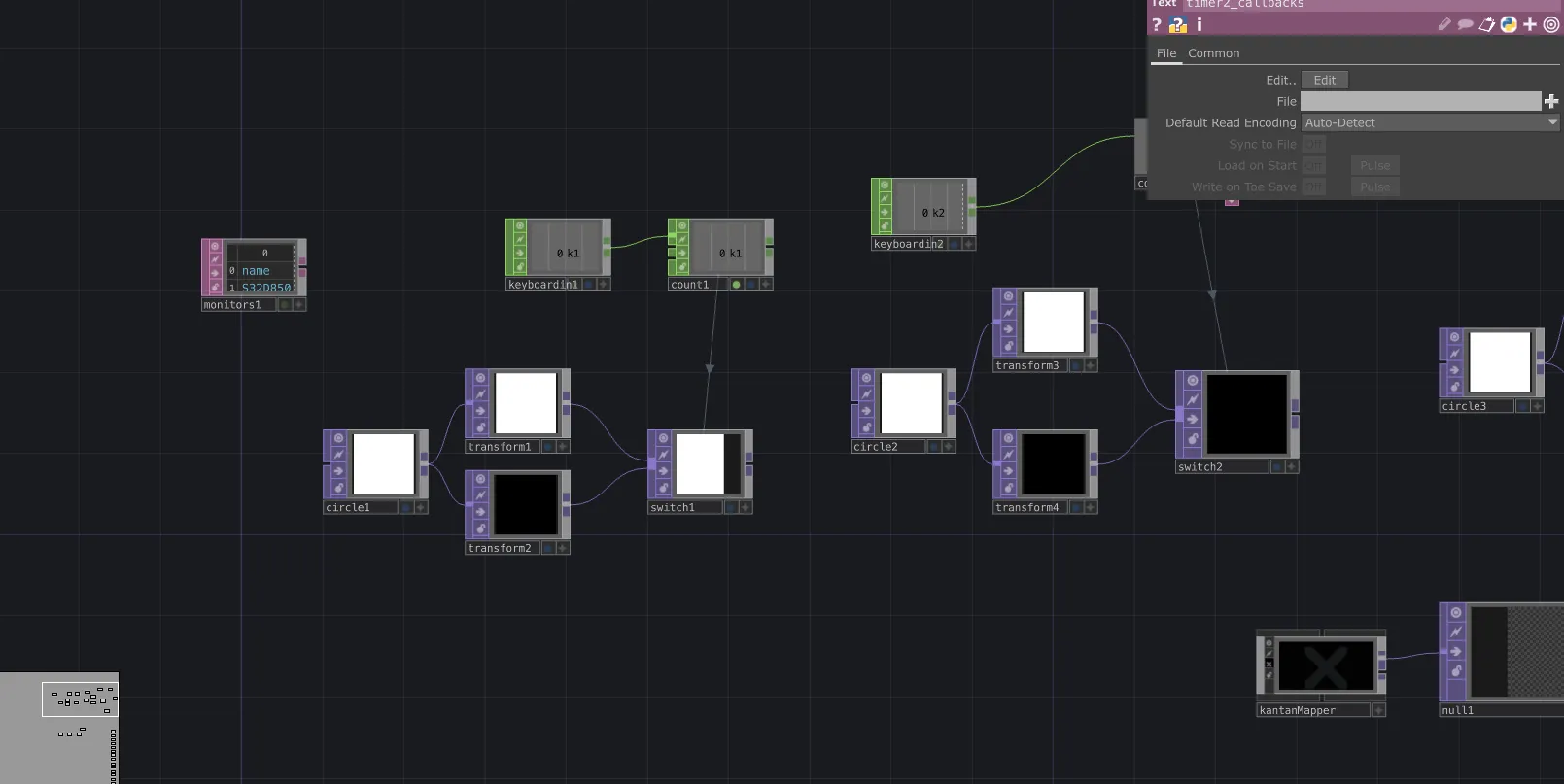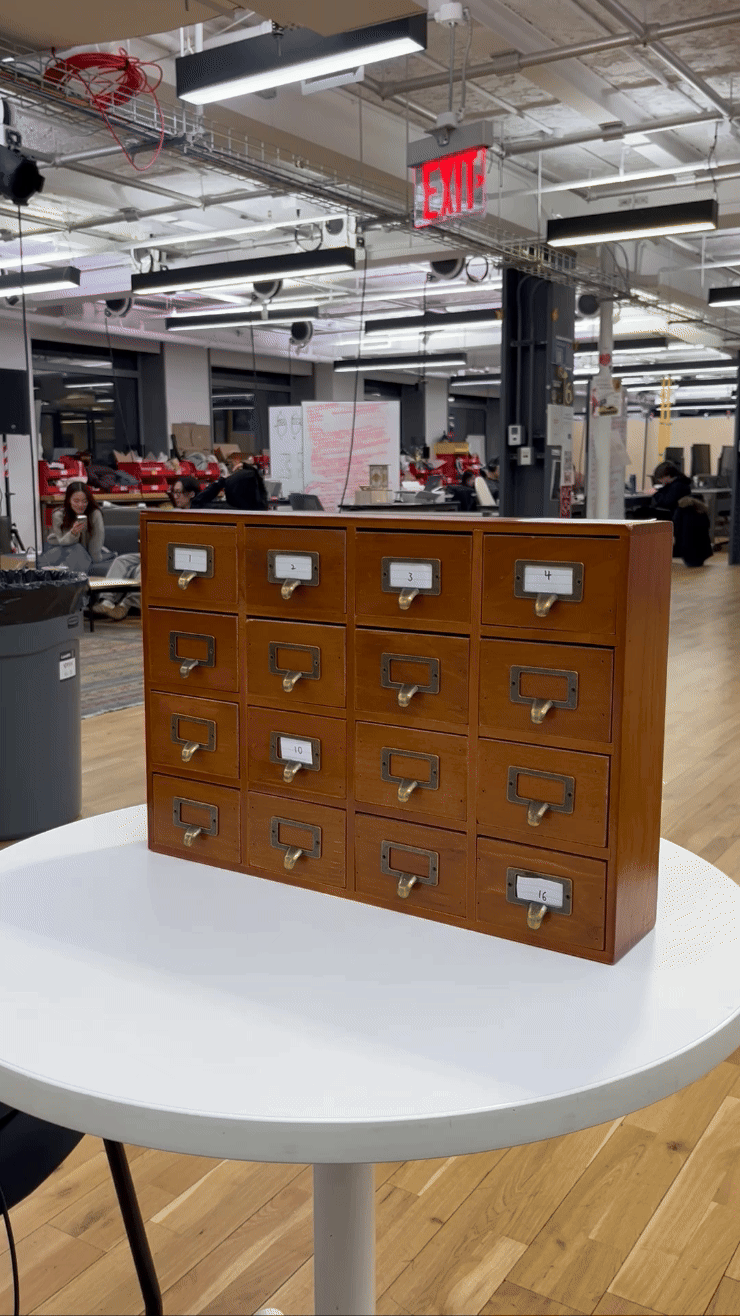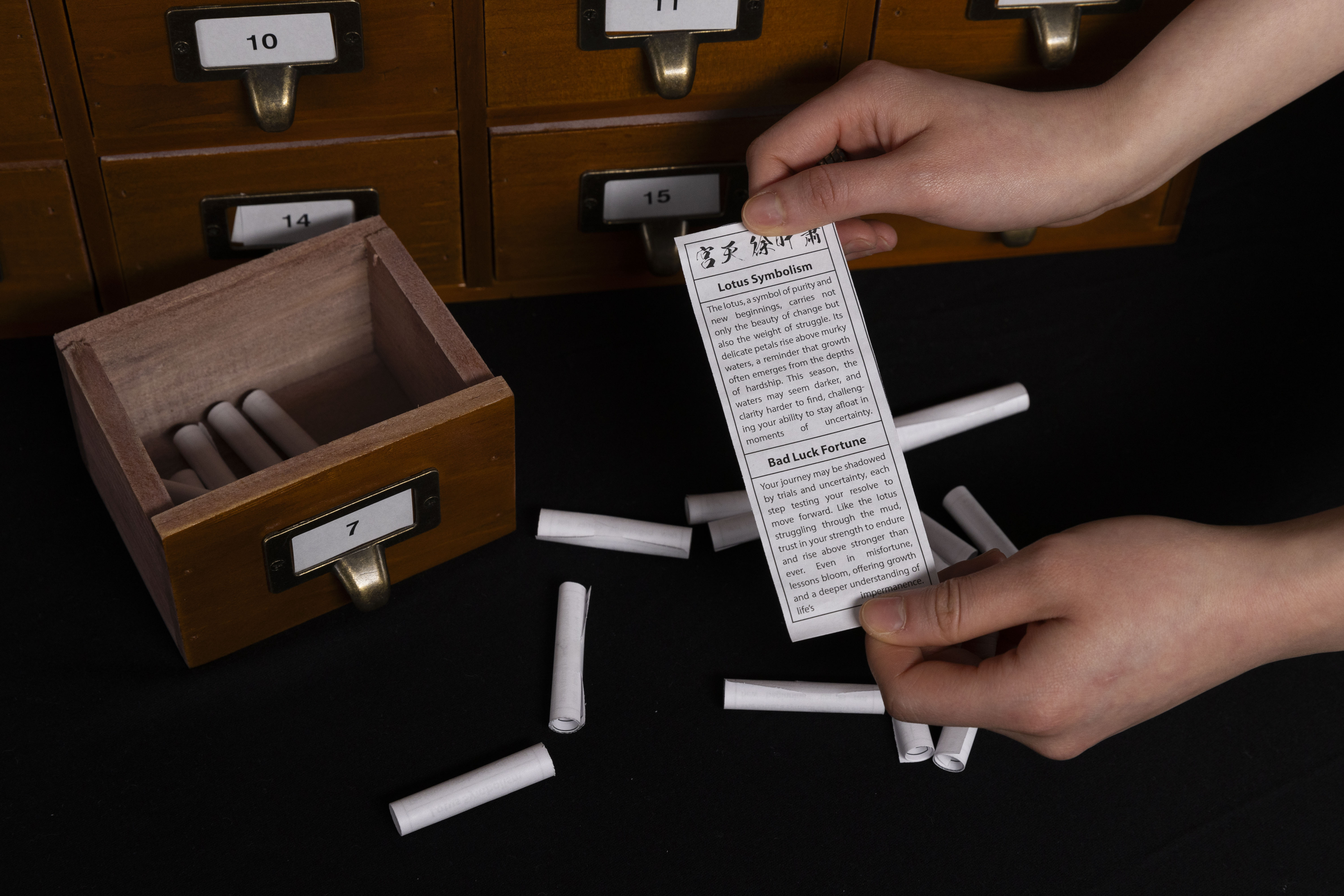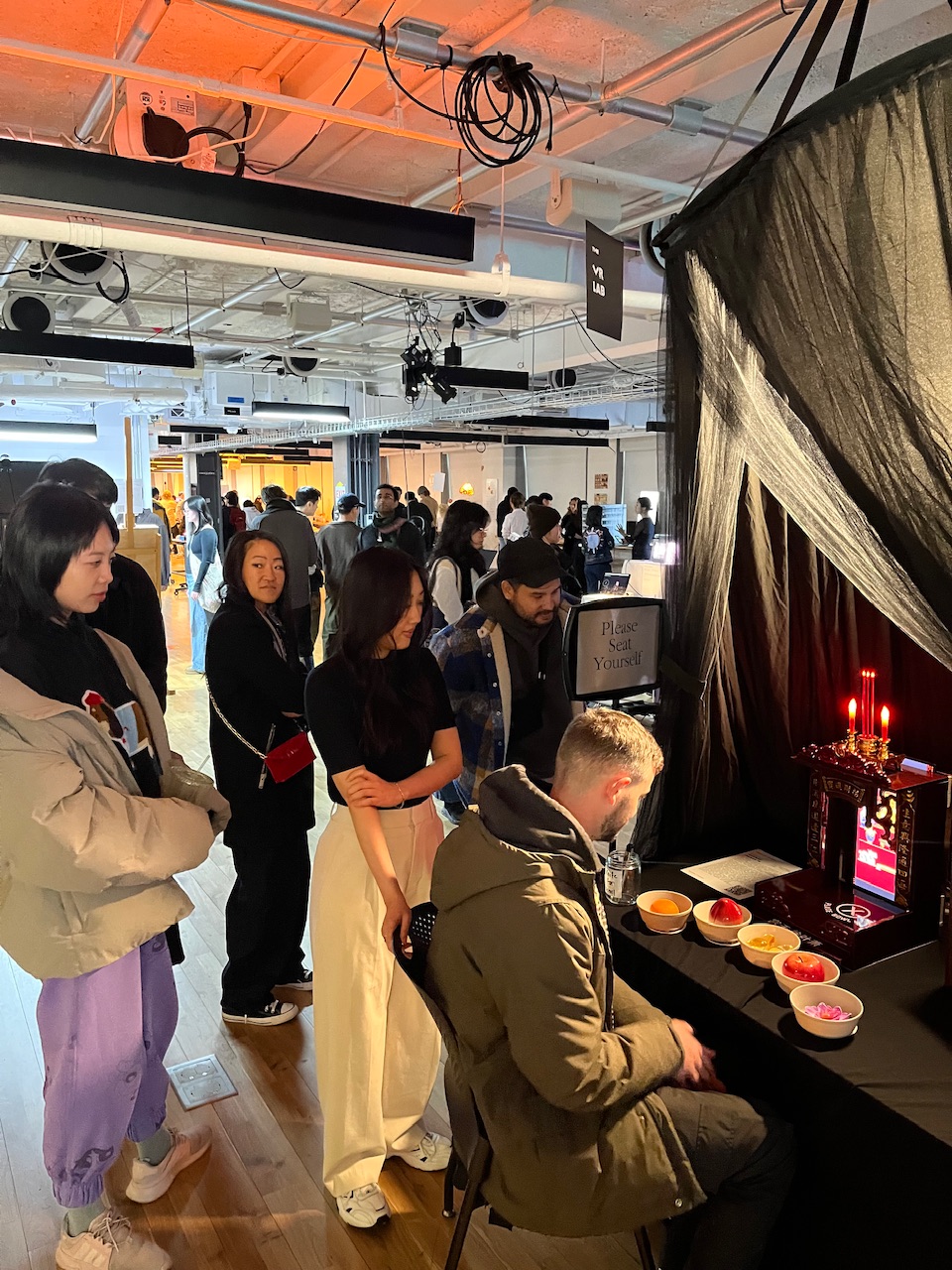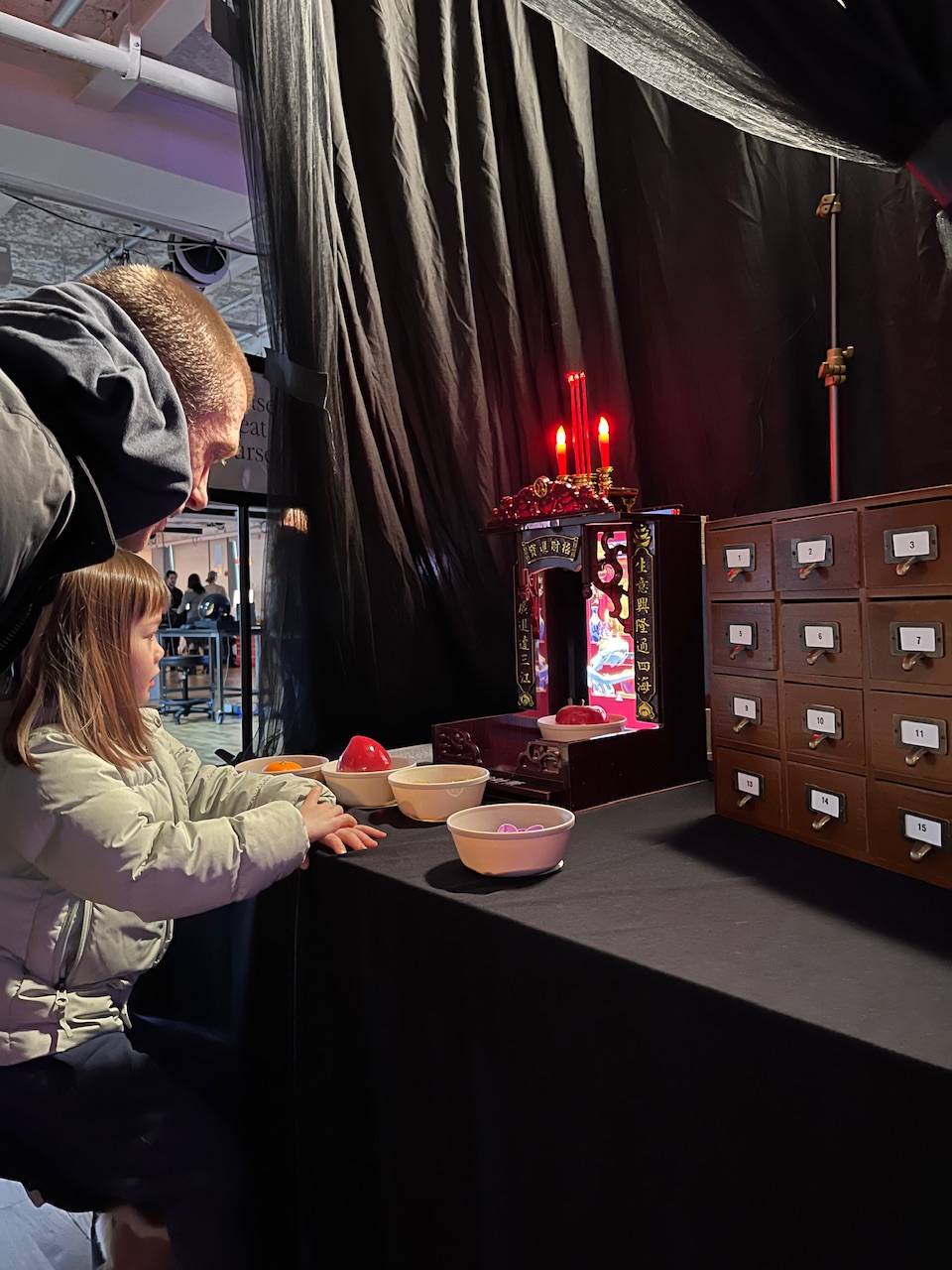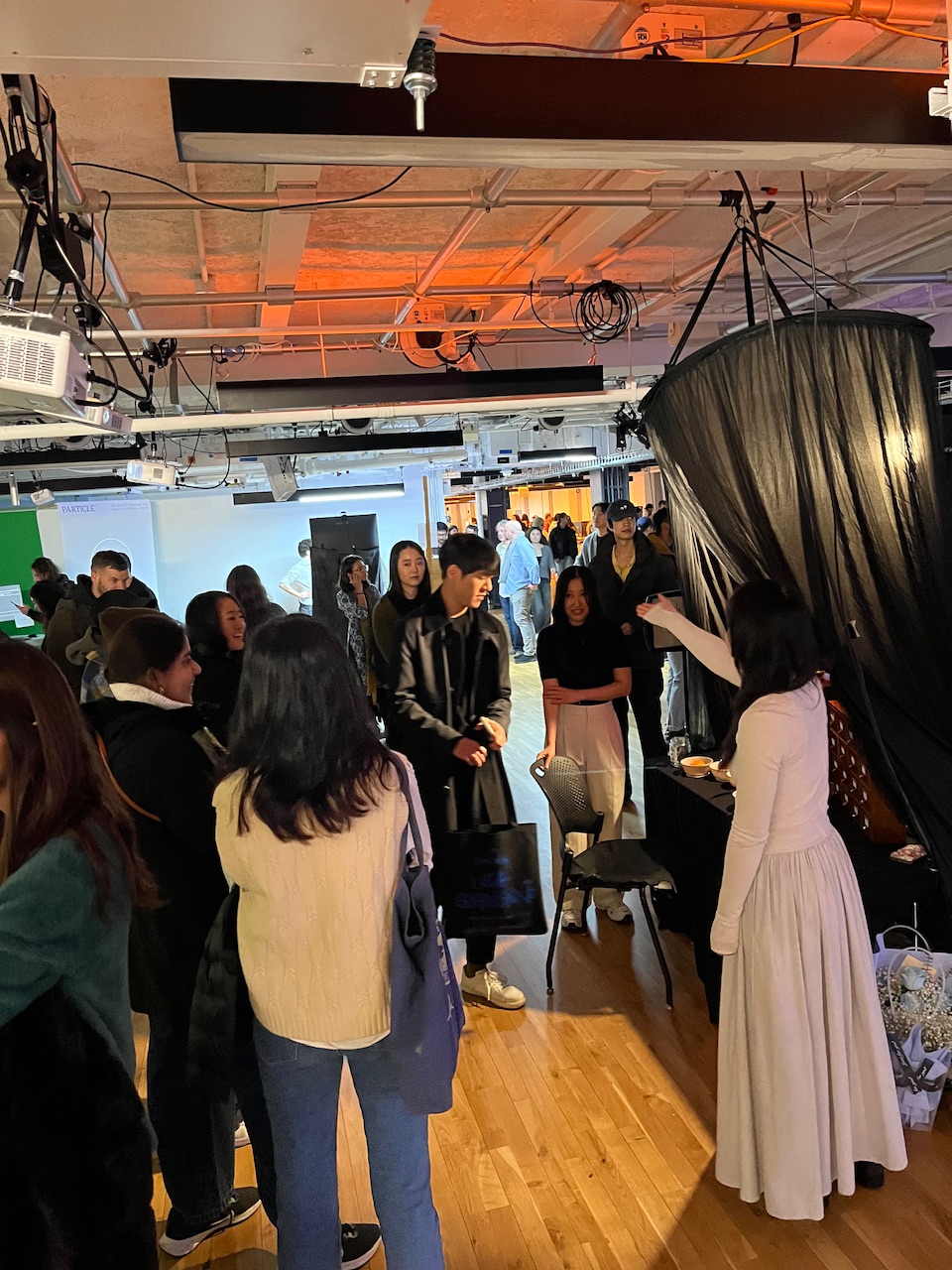TEMPLE OF FORTUNE
Temple of Fortune transforms Chinese fortune-telling traditions into an interactive shrine installation. Using RFID sensors, pressure detection, and projection mapping, the installation responds to visitors with real-time animations and lighting. The project combines Arduino interactions, Unity animations, and TouchDesigner projection mapping to create an immersive experience that bridges cultural storytelling with modern technology.

